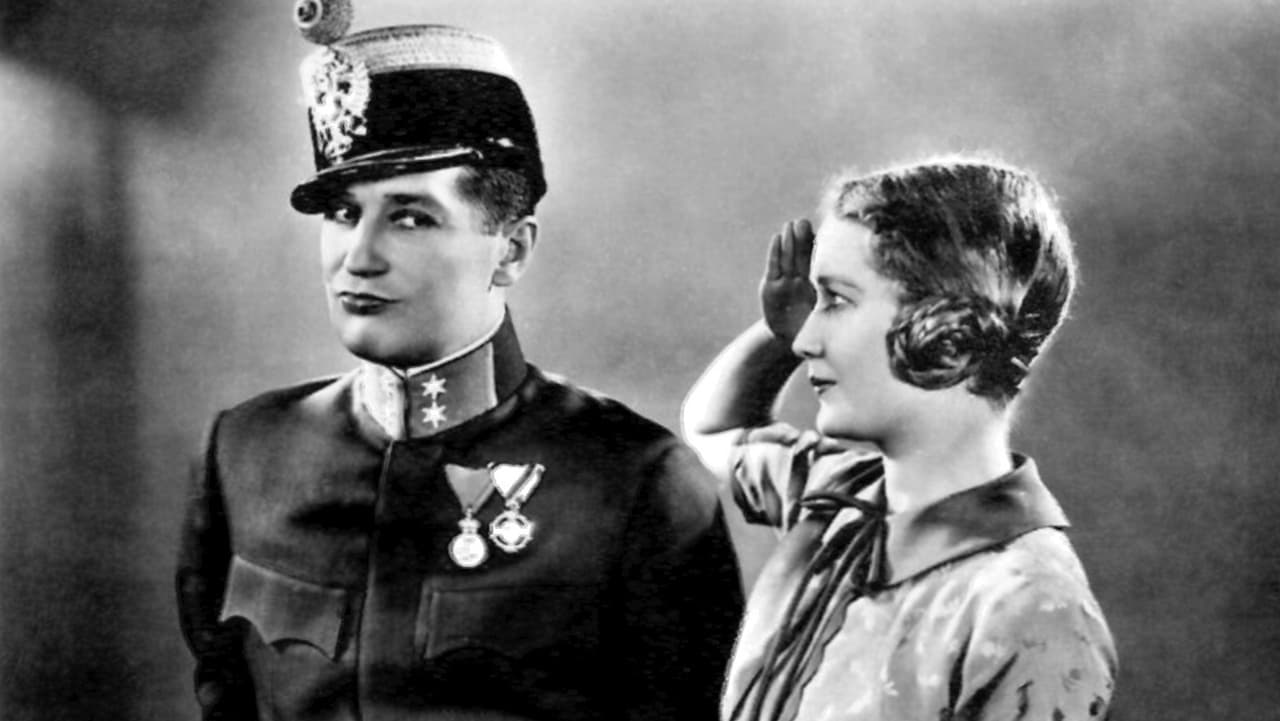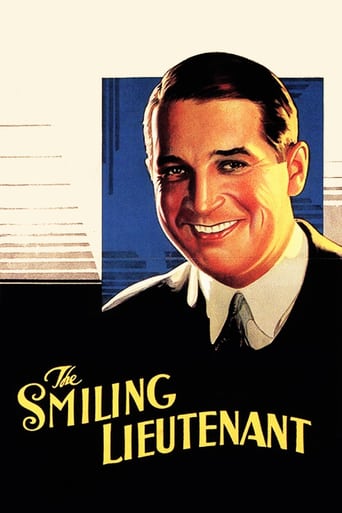



The greatest movie ever!
What a freaking movie. So many twists and turns. Absolutely intense from start to finish.
View MoreThis is a dark and sometimes deeply uncomfortable drama
View MoreI think this is a new genre that they're all sort of working their way through it and haven't got all the kinks worked out yet but it's a genre that works for me.
View MoreI am grateful for Lubitsch. I always am when I watch a good film, but the feeling is somehow of a different magnitude when the encounter suggests a consistently bright and sensitive soul. He must have been having a blast composing these things, sculpting the contours of little jokes, rubbing as frivolously as he could against the edges of sexual protocol. Much has been made of his Touch, though it seems an elusive thing: reading up on various critics' proposed theories of it, you couldn't get two to agree—even his collaborator Billy Wilder, when interviewed about it, seems a bit mystified. I have my own notion that I'm working on, but hashing that out is in the future.Yes, you will have a great time with this, quite possibly the raunchier of all the precode musicals I have been visiting as of late. The farce is about finding a million small ways to suggest sex, some of them bawdy, usually elegant—breakfast as sex talk, a bugle's rousing ra-tat-tat as arousal, 'Jazz up your Lingerie', and the baffling scene that closes this, where the virginal princess, instructed on seduction by her sexual rival, transforms into a wild flapper—smoking, banging a jazz tune at the piano—to get the capricious lothario she lusts after into bed, all this amounting more or less to the happy end of a successful romance.One more thing. The engine that drives this cinematic world into motion, I'm sure most viewers would not think twice of it, but I'm in the habit of noting interesting cases. In this case, I believe (though it is too early to tell) it exemplifies on the deepest level the whole cosmology of Lubitsch.On a first level, it is simple enough; a misunderstood smile.As the misunderstanding is the most commonplace trope, this isn't particularly useful or revealing. This is what happens a little later though. The dashing lieutenant is instructed—as per the emperor's wishes —not to propose, not even speak to the smitten princess. This is presented by the adjutant who makes the case not as a cut-and- dry decision, but as the product of much political deliberation and digress, itself an impish joke on imperial etiquette. So far so good. In the following scene, however, he receives a congratulatory phonecall on his marriage. And in yet the next scene, he is officially congratulated in person by the emperor, the same one who forbade him to propose.Yes, we can reason that somewhere along the line, for whatever reasons, the decision was reverted, that is beside the point. The point is that lesser filmmakers would explain. And yet it makes sense seemingly illogical as we have it.So how about this for a blueprint? Improvisation and whimsical digress, and in the quantum level of narrative, you have spontaneous uncertainty, which is the most universal of attributes. And in the world of the film, this is going to have far-reaching imports, like deciding the course of empires.Something to meditate upon.
View MoreIn that era we rather misleadingly call "pre-code", infringements against the production code (which was fully in existence, just lacking in enforcement) came in all shapes and sizes. While some producers titillated their audiences with tentative nudity or shocked them with frank portrayals of infidelity and prostitution, others used delicate but potentially more flagrant transgressions of innuendo. It was at Paramount studios, in the pictures of Ernst Lubitsch, that innuendo was taken to astounding new heights of creative expressiveness.Of course, Lubitsch was and still is known for his tact in implying the unspoken, but he did not operate in a vacuum. The Smiling Lieutenant was his first collaboration with screenwriter Samson Raphaelson, and while Lubitsch was no doubt the driving personality behind his famous "touch", it seems Raphaelson (who would have a hand in most of the director's subsequent hits) thought enough along the same lines to make the pictures he wrote by far the most "touched". So while Lubitsch gives us visual clues such as the young lady using a secret knock to get into Maurice Chevalier's room, followed by a close-up of a light going on and off, it was probably Raphaelson who contributed some of that witty wordplay that adequately sets the tone. My favourite example of this has to be Chevalier's reply to Miriam Hopkins asking if married people winked; "Oh they do, but not at each other!" And then there are Clifford Grey's lyrics, which playfully delve into some of the more inventive innuendo, most memorably in "Breakfast Table Love".Chevalier is the perfect star for this kind of understated ribaldry. He has a "touch" of his own, in the way he smiles and raises his eyebrows, that curiously yet alluring treads the line between lecherous and charming. His appearance here, after the disappointing Monte Carlo with Jack Buchanan, demonstrates how important the right kind of actor is for such a role. If Jack Buchanan invited you to breakfast, you'd think he was making a polite offer to pop round in the morning for tea and toast. When Maurice Chevalier invites you to breakfast, there is absolutely no doubt that he wants you to spend the night, and frankly doesn't care what you fancy eating the next morning! Claudette Colbert makes a great screen partner for Chevalier. She is not quite the talented singer that Jeanette MacDonald is, but she has a slinkiness to her that suits the story's undertones, and would later be exploited by Cecil B. DeMille in Sign of the Cross and Cleopatra. This may be one of her earlier roles, but she shows a great confidence and maturity about her that is perfect for the part. The third corner of The Smiling Lieutenant's love triangle is Miriam Hopkins. Hopkins is sometimes mistaken for a bad actress. This is not the case. She is in fact an excellent ham, as were Charles Laughton and John Barrymore, by no means a subtle or realistic player, but nevertheless utterly captivating in the right role. She is excellent here as the naïve and frumpy young princess, displaying her finest comedic sensibilities.The Smiling Lieutenant contains only five songs, far fewer than previous Lubitsch musicals. With the exception of "Jazz Up Your Lingerie", the numbers also seem far less integral to the narrative than they were in Monte Carlo (which by the way is the best in terms of musical direction and integration, albeit the worst in every other respect). And yet this is a very consistently musical production. In 1931 it was still unusual for pictures to feature incidental music, and ironically the early talkies were often genuinely silent whenever the actors stopped talking. The Smiling Lieutenant however is scored almost from its first minute to its last. Contrary to the later practice of writing all music after filming wrapped, I suspect the incidental scoring may have been prepared beforehand and even played on the set. In particular Claudette Colbert's poignant abandonment of Chevalier seems almost choreographed to its sweeping string arrangement.When such backing scores became commonplace, they sometimes actually spoiled a picture's integrity, blaring out emotional cues for each scene when none was required. But for The Smiling Lieutenant it is a positive bonus, providing a light and lyrical setting for the many wordless moments. And this of course is all the better for those neatly constructed vignettes of unspoken innuendo, sly winks at the audience that are so fabulously clever they are a delight in themselves.
View MoreSince this seems to have been largely unnoticed by most of the previous commentators, I will just add a paragraph here to point out that this movie is an adaptation, of sorts, of one of the major hits of the Viennese musical stage during the first decade of the 20th century, Oscar Straus' Ein Waltztraum/A Waltzdream. The characters' names and some of the situations are kept, as are a few of the original numbers, mostly used as background music. (Most of the actual songs are new, and not from the operetta.) You might say "So what?", especially if you have no interest in silver-age Viennese operetta. But this factoid is of interest in that, 3 years later, MGM would try the same thing, once again with M Chevalier directed by Ernst Lubitsch, on another of the major hits of the Viennese musical stage during the first decade of the 20th century, and that time the result would be a smash success: The Merry Widow. (Replacing Miriam Hopkins with Jeannette McDonald helped a lot, as did Lehar's music, which is a lot better that Straus's.) This movie didn't do much for me - neither does A Waltzdream, frankly - but it's interesting to see a first attempt at something MGM, Lubitsch, and Chevalier would soon do so much better.
View More104: The Smiling Lieutenant (1931) - released 8/1/1931, viewed 7/2/08.DOUG: For his follow-up to the dreary Monte Carlo, Lubitsch gathered three of his most reliable muses, Maurice Chevalier, Miriam Hopkins, and Claudette Colbert, all in one movie. The territory is very familiar: Chevalier plays the titular Lt. Niki, ANOTHER charming, straw-hat wearing military man who catches the eye of ANOTHER naïve princess from ANOTHER fictional country. Colbert plays Franzi, Niki's spunky violinist girlfriend, and Miriam Hopkins plays the princess, endearingly sexually repressed and prone to crying spells. It's not a terribly dramatic plot, even by the standards of a romantic comedy. Especially charming are the scenes between Franzi and Anna, particularly the racy musical number "Jazz up your Lingerie." (That can't be Code approved.) As in the best Lubitsch fare, everyone's that unique brand of crazy that's endearingly charming and sexy and funny. Right along with Trouble in Paradise, this is one of Lubitsch's best, and one of the great Pre-code comedy-musicals.KEVIN: And now we flash back to the first meeting of Ernst Lubitsch with the beautiful bag of wonderfulness called Miriam Hopkins. Lubitsch again teams with Maurice Chevalier (as the titular lieutenant), and also brings in Claudette Colbert, who's never looked lovelier as the titular lieutenant's initial love interest. Chevalier's character finds himself once again playing a high-ranking member of society who is suckered into an unhappy marriage to a royal. But this time, there's another woman thrown into the mix. Unfortunately the three leads are never all together in any major way, but the film climaxes when the two ladies finally confront each other, with unexpected consequences, including the film's most memorable jingle "Jazz Up Your Lingerie." And on a more aesthetic note, I suspect that this film has the least amount of dialogue of all the Lubitsch talkies I've seen. ***SPOILER*** The ending surprised me. I was sure all through the story that Chevalier would end up with Colbert, the one he really loved from the beginning, but the unexpected consequences of said final confrontation made this one more than a little fresh. Plus, it leads us to the image of Miriam Hopkins that we would come to love in later films. ***END SPOILER***.Last film viewed: The Criminal Code (1931). Last film chronologically: M (1931). Next film viewed: Shanghai Express (1932). Next film chronologically: Monkey Business (1931).
View More